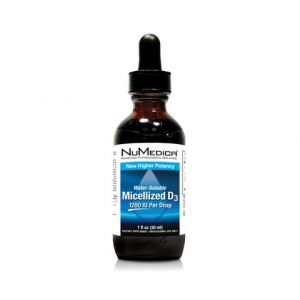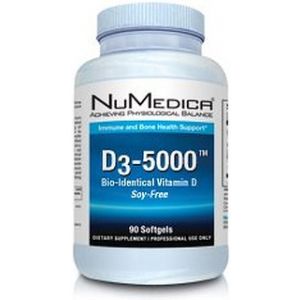The Essential Benefits of Vitamin D for Health

Vitamin D, often known as the "sunshine vitamin," is a crucial nutrient that plays a vital role in maintaining overall health and well-being. It is unique because our bodies can produce it when exposed to sunlight. However, many people do not get enough sunlight or dietary vitamin D, leading to potential deficiencies. Let’s explore the numerous benefits of vitamin D for both men and women and highlight why it's essential to ensure adequate intake.
Comprehensive Health Benefits of Vitamin D
Bone Health
One of the most well-known benefits of vitamin D is its critical role in bone health. Vitamin D helps the body absorb calcium, a mineral essential for the development and maintenance of strong bones. Without sufficient vitamin D, bones can become thin, brittle, or misshapen. For both men and women, adequate vitamin D levels can help prevent conditions like osteoporosis, a disease characterized by weak and fragile bones, and rickets in children, which causes bone deformities.
Immune System Support
Vitamin D is known to enhance the pathogen-fighting effects of monocytes and macrophages — white blood cells that are important parts of your immune defense — and decreases inflammation. It plays a vital role in promoting immune response, making it crucial to maintain adequate levels to help ward off infections and illnesses.
Muscle Function


Vitamin D is also important for muscle function. It enhances the efficiency of muscles and is necessary for muscle contraction. Adequate vitamin D levels can help prevent muscle weakness and pain, which are often associated with deficiency. This is particularly important for aging adults, as it can help maintain muscle strength and reduce the risk of falls and fractures.
Cardiovascular Health
Research has shown that vitamin D may play a role in heart health. It is thought to help regulate blood pressure and may protect against cardiovascular diseases such as heart attack, stroke, and hypertension. For both men and women, maintaining healthy vitamin D levels can contribute to overall cardiovascular health.
Mood Regulation and Mental Health
Vitamin D is believed has a positive effect on mood and mental health. Low levels of vitamin D have been linked to an increased risk of depression and seasonal affective disorder (SAD), a type of depression that occurs at certain times of the year, usually in the winter when sunlight exposure is limited. Ensuring adequate vitamin D intake can help improve mood and may support mental well-being.
Weight Management and Metabolic Health
Studies suggest that vitamin D might help with weight management and metabolic health. It has been associated with a reduced risk of developing metabolic syndrome, a cluster of conditions that increase the risk of heart disease, stroke, and type 2 diabetes. For individuals working on weight loss or managing their metabolic health, adequate vitamin D levels can be beneficial.
Hormonal Balance
Vitamin D plays a role in hormonal regulation, which is essential for both men and women. In women, it can help regulate menstrual cycles and support reproductive health. For men, vitamin D is important for maintaining healthy testosterone levels, which can impact energy, mood, and sexual health.
How to Get Enough Vitamin D


Given its many benefits, it's crucial to ensure you're getting enough vitamin D. Here are some ways to boost your vitamin D levels:
- Sunlight Exposure: Aim for about 10-30 minutes of midday sunlight several times a week. This can vary based on your skin type, location, and time of year.
- Diet: Include vitamin D-rich foods in your diet, such as fatty fish (salmon, mackerel), fortified dairy products, eggs, and mushrooms.
- Supplements: If you have trouble getting enough vitamin D from sunlight and diet, consider taking a vitamin D supplement. Always consult with a healthcare provider before starting any new supplement regimen.
- Measure Vitamin D: Because Vitamin D is a fat soluble vitamin, it can accumulate and create toxicity if not closely monitored. Get your Vitamin D levels measured regularly to ensure the levels are high enough for its benefits but not too high to create risk.
The Crucial Role of Vitamin K When Taking Vitamin D
While Vitamin D is a well-known nutrient that plays a critical role in maintaining bone health, supporting the immune system, and ensuring overall well-being, an often overlooked but equally important nutrient that works synergistically with vitamin D is vitamin K. Understanding the interplay between these two vitamins is essential for maximizing their benefits and maintaining optimal health.
The Synergy Between Vitamin D and Vitamin K
While both vitamins are essential individually, their combined effects are particularly powerful. Here’s why taking vitamin K with vitamin D is important:
- Vitamin D's Role: Vitamin D helps the body absorb calcium from the diet, ensuring that enough calcium is available in the blood.
- Vitamin K's Role: Vitamin K activates the proteins osteocalcin and matrix GLA protein, which help bind calcium to the bone matrix and prevent calcium from depositing in the arteries and other soft tissues.
Without adequate vitamin K, the calcium absorbed with the help of vitamin D may not be properly utilized, leading to potential issues such as arterial calcification and increased risk of cardiovascular disease.
Practical Recommendations
To maximize the benefits of vitamin D and ensure proper calcium utilization, it is recommended to:
Take Vitamin K2 Supplements: If you are supplementing with vitamin D, consider adding a vitamin K2 supplement to your regimen. Look for supplements that contain menaquinone-7 (MK-7), a form of K2 that has a longer half-life in the body and is more effective at activating osteocalcin.
Incorporate Vitamin K-Rich Foods: Include vitamin K-rich foods in your diet, such as leafy greens for K1 and fermented foods or animal products for K2.
Balanced Supplementation: Aim for a balanced intake of vitamins D and K. Consult with a healthcare provider to determine the appropriate dosages for your individual needs.
Conclusion
Vitamin D and Vitamin K are essential for numerous aspects of health, from bone strength and immune function to mood regulation and cardiovascular health Taking vitamin K with vitamin D helps ensure that calcium is properly utilized in the body, enhancing bone strength and preventing arterial calcification. By understanding the synergy between these vitamins and incorporating both into your diet or supplement regimen, you can optimize your health and well-being. Always consult with a healthcare provider before starting any new supplement to ensure it is appropriate for your individual needs.
Shop Vitamin D Products at Martin’s Wellness
About Dr. Ruthie Harper
Dr. Ruthie Harper, MD, is the founder of Ruthie Harper MD, a renowned practice established in 1999 in Austin, Texas. With over 25 years of experience, she offers the latest services and techniques in health, wellness, and nutrition. Dr. Harper seamlessly integrates research, nutritional science, advanced functional testing, and cutting-edge aesthetics to develop scientifically-based health protocols. Her personalized interventions encompass nutrition, supplements, lifestyle changes, bioidentical hormones, and breakthrough anti-aging treatments. As a dedicated researcher, Dr. Harper has been a pioneer in integrative and functional medicine. Through her relentless efforts, she has empowered numerous patients to achieve their optimal health and wellness goals.





